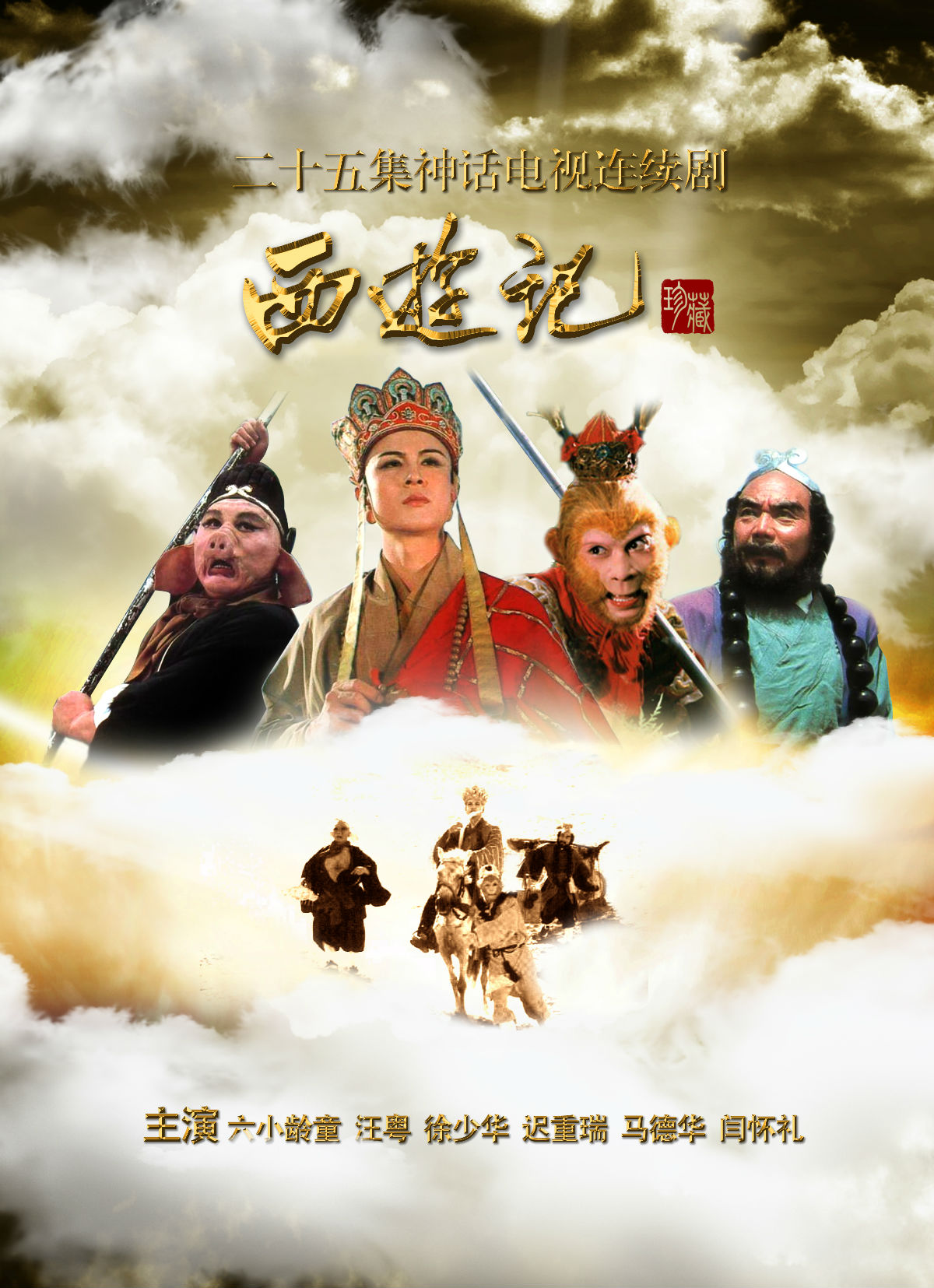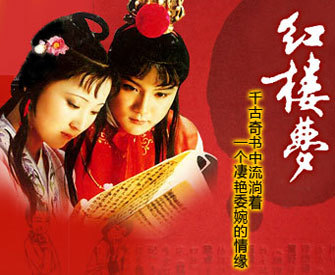This afternoon while having lunch at home I turned on TV and tried to find some interesting program to watch. The classical Chinese myth TV play series on CCTV-8 named Journey to the West caught my eyeball again.
This great TV series was adapted from the literary classical masterpiece with the same name, authored by Wu Cheng’en, a Chinese novelist and poet of Ming Dynasty (1368-1644). It’s one of the Four Great Classical Novels of Chinese literature. The other three are Water Margin, Romance of the Three Kingdoms and Dream of the Red Mansion. It’s a story about the legendary pilgrimage of the Tang dynasty Buddhist monk Xuanzang, who traveled to the "Western Regions", that is, India, to obtain sacred Buddhist texts (sutras) with the accompany of his three disciples, each of whom possessed supernatural powers, and years later finally returned successfully after going through numerous trials and tribulations.
This TV play hit the screen as early as the year of 1986. I remember watching it in my childhood on a small black and white TV with all the people in our big courtyard crowded in a single room of one of our neighbors. At that time, only relatively rich families could afford a black and white TV and color TVs weren’t even heard of. Now I’ve been in my late 20s, and I’ve watched Journey to the West for I don’t know how many times. However, I’ve never felt tired of watching it. The play has been on TV at least every summer and still enjoys wide popularity among people from all walks of life and of all ages. I’ve been wondering what’s the charm of this TV play that makes it classical and its fame and popularity everlasting.
In recent years, TVs have been deluged with various kinds of TV play series for people to kill time. However, easy come, easy go, the popularity of the majority of them is only ephemeral, completely incomparable with the original adaptions of the Four Great Classic Novels.
Journey to the West has been repeatedly adapted into TV plays since its 1986 TV edition. However, their influence is nowhere near as strong as that of the 1986 edition. But WHY? Were the actors and actresses in 1986 edition better at acting skills? I’ve no idea. In the 1980s, Chinese TV industry was still quite undeveloped. TV series those days like Journey to the West(1986 edition) and Dream of the Red Mansion (1987 edition), were made and processed with far less special effects, actors wore much less make-up than those nowadays. But why have they succeeded in capturing the heart of generations? It’s a question.
The development of informationization in modern society give people more opportunities to choose,that might be one of reasons.
It doesn't matter if you don't know much Chinese, even the pictutes in it are quite interesting and often hilarious. Besides, you can also search for it in Wikipedia, which has comprehensive introduction to the Four Great Classical Novels of Chinese literature. If Chinese English learners are already fed up with reading their Chinese edition or watching their TV series, then why not try the Wikipedia? Surely you'll learn more there.
Thanks for dropping the first comment upon my blog again.Strangely , up to now, I still don't think it's a bad way to pass time, much better than many of today's boring soap operas, most of which I cannot stand watching through even once.
I also seldom watched it on TV, but only pictures due to poor Chinese. what i suppose that its a religious, ancient drama which reflects age-old timeless creed. it might be interesting among non-religious nation chinese audience.
It is really a good memory!-------but don't watch it for more than two times!----or that would be nonsense!









Comment